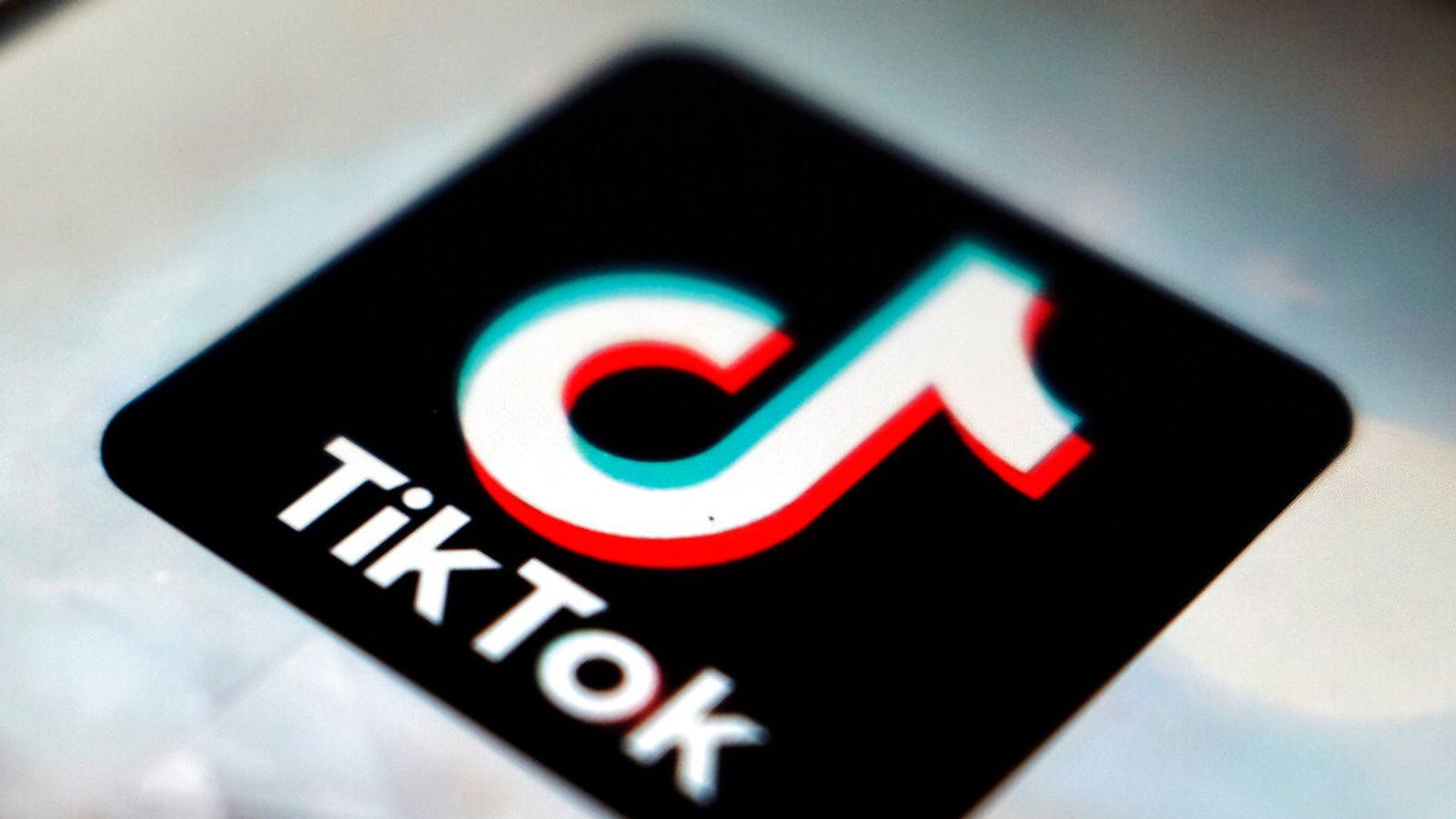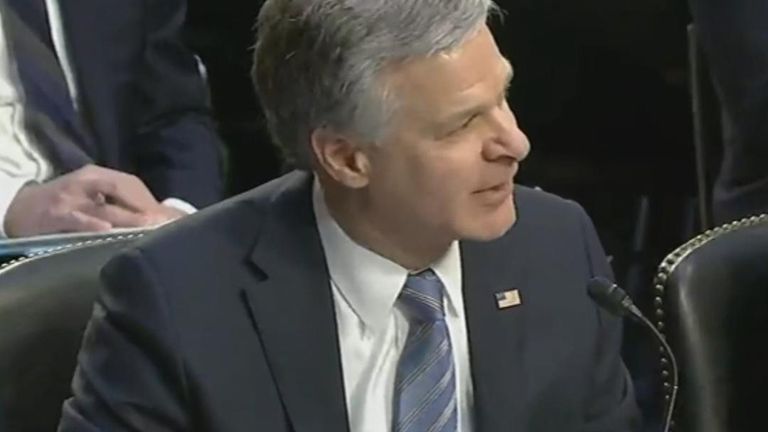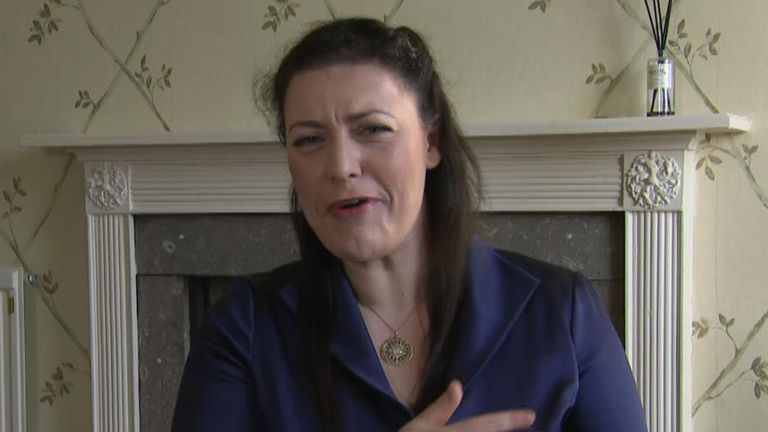TikTok could find itself in the crosshairs of UK authorities as they consider whether the video-sharing app should be banned.
Security minister Tom Tugendhat told Sky News he had asked the National Cyber Security Centre to look into the Chinese-owned platform, which has more than one billion users worldwide.
Despite its popularity, it has come under heightened scrutiny in Europe and the US over its links to Beijing – with concerns that it could be used to collect user data en masse.
Sky News contacted TikTok about the increasingly hardline approaches, as the UK mulls following its allies in banning the app from government devices.
A spokesperson said they would be “disappointed” by such a move.
“Similar decisions elsewhere have been based on misplaced fears and seemingly driven by wider geopolitics, but we remain committed to working with the government to address any concerns,” he said.
“We have begun implementing a comprehensive plan to further protect our European user data, which includes storing UK user data in our European data centres and tightening data access controls, including third-party independent oversight of our approach.”
Here’s where action has already been taken.
US
Politicians in Congress have been ordered to remove TikTok from their work phones over data privacy fears.
They have also been stopped from downloading it in future, with the House of Representatives’ cybersecurity experts having deemed it to be a “high risk to users”.
Some want the measures to go even further, with a full nationwide ban being mooted. Republicans and Democrats joined forces late last year to unveil bipartisan legislation that would enforce such a nuclear option.
The bill would block “any social media company in, or under the influence of” China and other hostile countries.
TikTok is owned by ByteDance, which is based in Beijing. It has described the legislation as politically motivated and has denied ever sharing data with the Chinese government.
The Congress ban came after dozens of individual states banned their own politicians from using TikTok on their government devices.
EU
The European Commission took similar steps to the US Congress last month, banning all employees from having TikTok on work phones.
A spokesperson said it was to “increase the commission’s cybersecurity”, but did not reveal whether it was down to any specific incidents or threats.
TikTok said the suspension was “misguided and based on fundamental misconceptions”.
Individual countries have also taken action, with Belgium and the Netherlands among those to have banned it from government devices.
In a bid to allay fears about data privacy within the bloc’s 27 members, the firm has announced it will open three European data centres where user information will be stored – and a third-party data security partner to oversee additional layers of security.
The company says these will further reduce employee access to data and limit data flows outside of Europe.
Among the data collected by the app are things like your IP address, what other apps you have on your phone, any sign-up information you provide, and location data and contacts if you give it permission.
India
The most wholesale TikTok ban is in India, where everyone is blocked from using it.
It’s one of a suite of Chinese-owned apps that people have not been allowed to download since 2020, including messaging platform WeChat.
Like bans in the West, it is based on security and privacy concerns.
TikTok had more than 200 million users in India at the time.
Taiwan
Like the US, Taiwan has enforced a ban on TikTok from all public sector devices.
The app could be used by the Chinese government to conduct “cognitive warfare” against Taiwan, authorities said.
It came amid concerns that Beijing could be preparing for an invasion of the self-governing island.
Canada
Canadian authorities followed the US in announcing a ban on TikTok from government devices.
National and local government departments enforced the move, saying the app posed an “unacceptable risk”.
Afghanistan
The Taliban banned TikTok last year for “misleading the younger generation”.
The group itself has brought in huge restrictions on girls’ education since sweeping to power in 2021.
It also said that the app hosted content that was “not consistent with Islamic laws”.
Previous bans
TikTok has also been the subject of temporary bans in a number of countries.
Pakistan, Jordan, Indonesia, and Bangladesh are among those where the app has been blocked due to content deemed inappropriate or offensive.
And what about China?
Somewhat ironically, some of the toughest restrictions on TikTok are in China itself, which has its own version of the app called Douyin.
Children there who are under-14 are limited to spending 40 minutes a day on the platform, and can only be using it between the hours of 6am and 10pm.
There are also measures to stop them seeing inappropriate videos, and be directed towards educational content.



